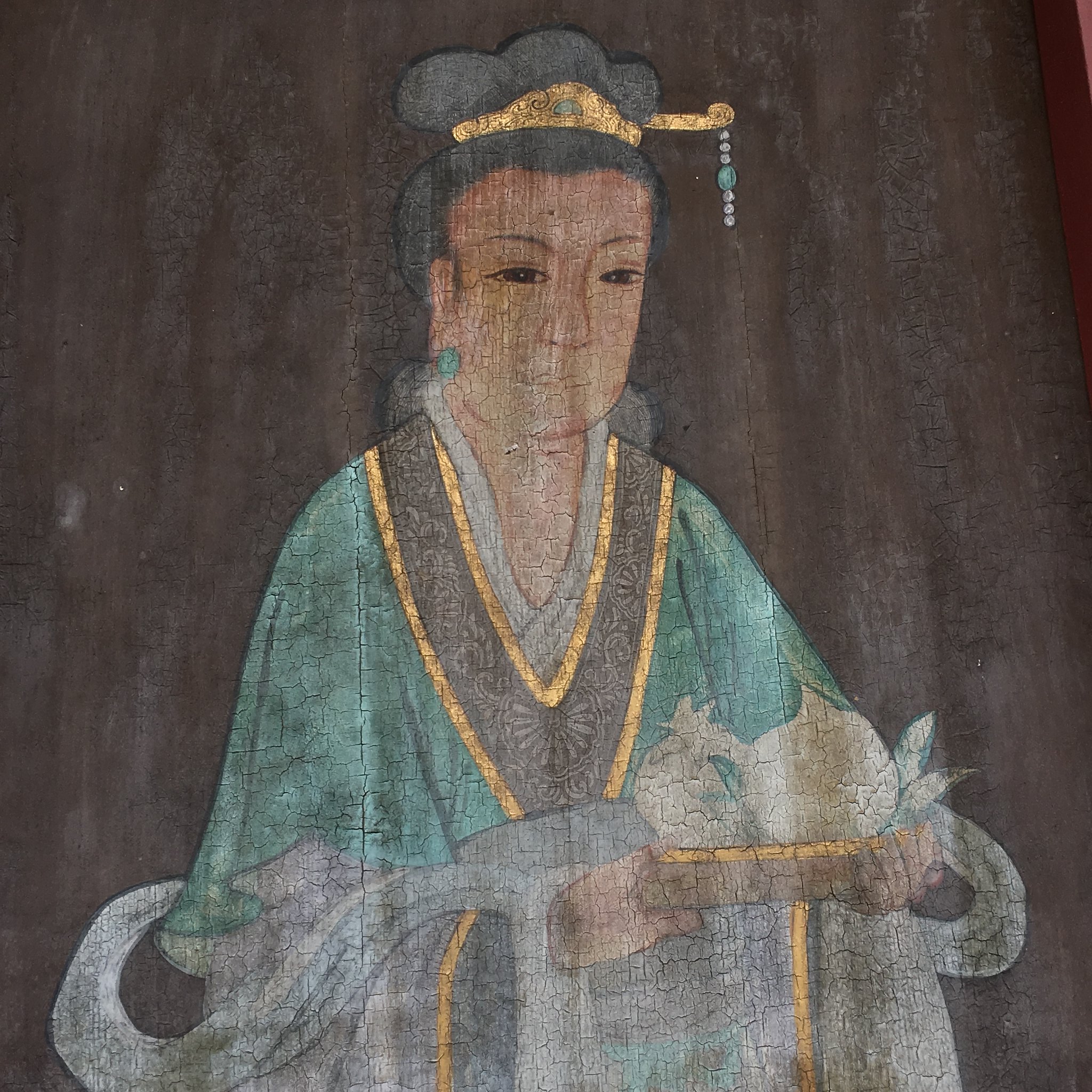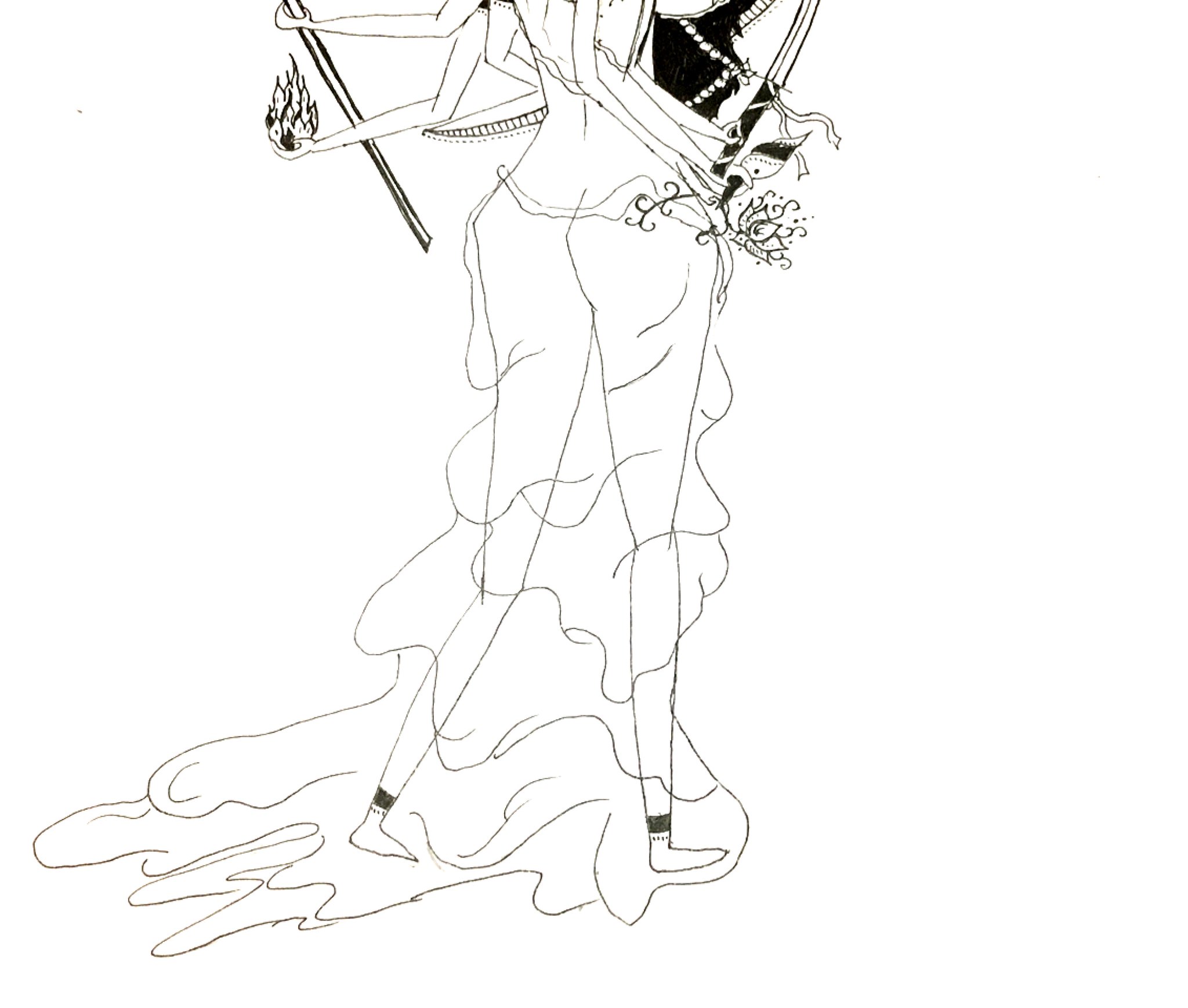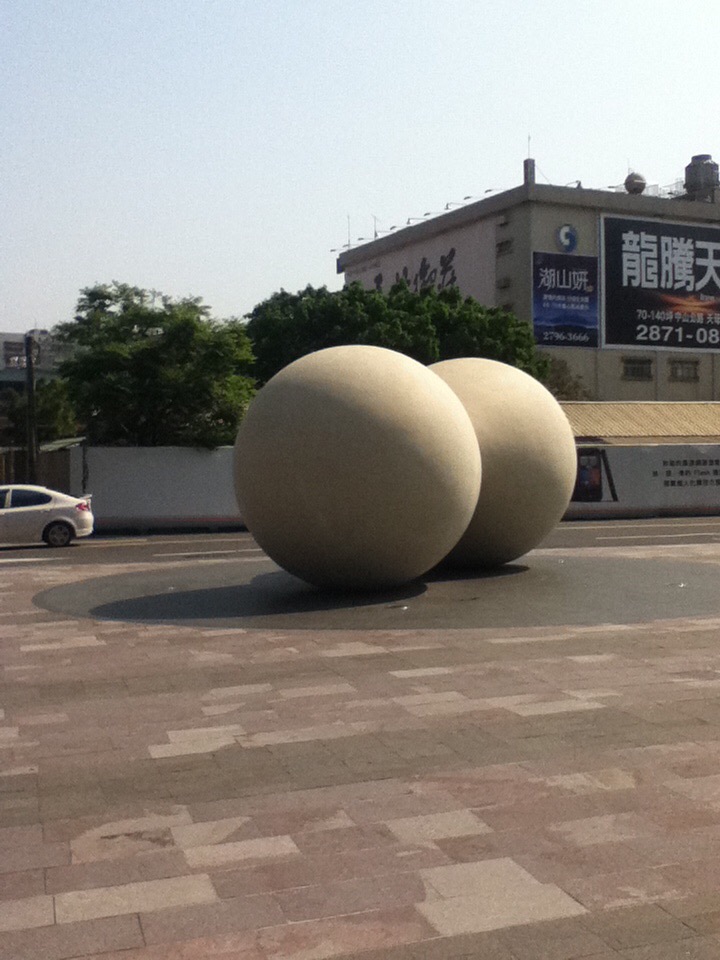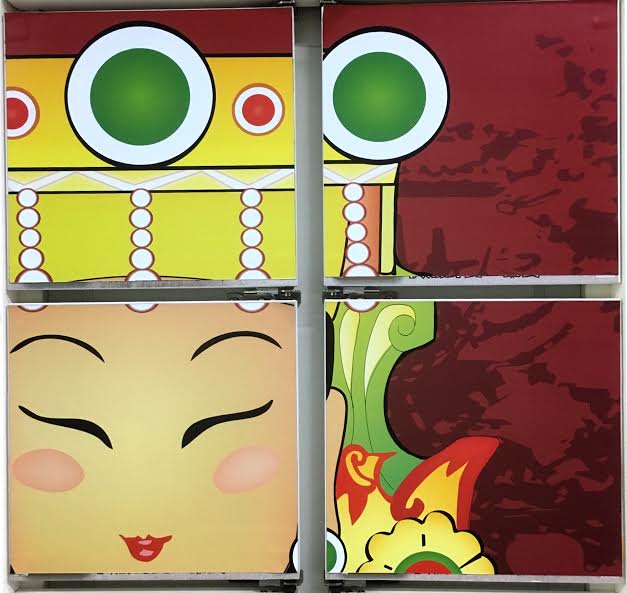 |
| A door goddess on the Five Concbines' Temple in Tainan. I like to think that women are seen as good for more than just sex, good looks and motherhood. |
Mother's Day was yesterday, but I am only getting around to writing this now. I don't do a lot on Mother's Day - although I have a grandmother and mother-in-law, it's still hard to do more than maybe offer a quiet tribute of some kind to my own mother, who passed away in 2014.
Anyway, I don't I'm not meaning to make any deep social commentary here, I just wanted to point out a common practice in Taiwan that I've never heard of being done where I'm from.
Perhaps you've heard of the "Ideal Mother Awards" (or "Exemplary Mother Awards", or however you'd translate it).
Basically, every Mother's Day, local communities, including my own, vote on which mothers in their communities are "Exemplary Mothers". There's a little ceremony and an award of some kind, often but not always presented by the neighborhood chief (里長). I can't imagine it's much. You might have your name published in the community newsletter if there is one. I only know about the one in my area because of that newsletter - I tried to read it once for Chinese practice, found it horribly boring, and haven't tried again.
According to the excellent Women's Movements in Twentieth-Century Taiwan, this is a 'custom' (a government-created tradition) dating back from the days of Soong Mei-ling -Chiang Kai-shek's wife - and has deep ties to state-sponsored women's groups in the ROC on Taiwan. (Autonomous, non-state-sponsored women's groups were not permitted, which is not surprising.) It's directly related to these organizations, and Madame Soong's 'leadership' in women's issues, and their/her vision of what ideal Taiwanese (well, Chinese from her point of view) womanhood should be. You won't be shocked to learn that it involved traditional gender roles, hard work as a homemaker, helpmeet and supporter of the (male) ROC troops in what was perceived to be an ongoing war effort. Basically, calling themselves advocates for women while pushing sexist, traditional gender norms.
I'm not sure who decides who is an "Exemplary Mother", to be honest, although I know there are a lot more community organizations than I am aware of as a foreigner, even as one who speaks Chinese and gets along more-or-less well with her neighbors (except, ahem, in 2014. You know why). I'd kind of forgotten about it as I no longer read my (again, horribly boring) community newsletter. I was only reminded of the practice again when a student told me that her mother-in-law would receive such an award.
Great! I thought. Here's a chance to ask a few questions about this particular...uh, tradition? Is it even one?
Ugh, my student seemed to think. It's such a silly old-fashioned thing. I hope nobody ever foists one of those awards on ME.
I have to admit, I had conceived of the "Exemplary Mother" awards as a sort of patriarchal pat-on-the-back, a carrot of reinforcement of outdated gender norms. Convincing women to think of their "place" as mothers and wives in the family so the whole Confucian train can keep rollin'. Though this is not limited to Asia, in Asia it's often associated with Confucianism, however, we are not innocent in the West, where I suppose it's just associated with being misogynist. Same difference?
And I write that even as someone who strongly dislikes the tendency of foreigners writing about Asia to revert straight to "Confucian!!!" to explain everything, even when that thing can be explained by saying "this is a thing that sucks." But maybe it can be used accurately in this particular case?
Back when I read that article in my community newsletter, I recall at least one-third to one-half of all of the "exemplary mothers" having dual surnames (e.g. Chen Zhuang Mei-ling or what have you), signifying that the mothers in question had taken their husbands' surnames in addition to their own: a practice that is considered by most to be very traditional and old-fashioned, and something of a social signal showing that you, too, are something of a traditionalist.
So, I imagined this whole shebang as a way to reward housewives, perhaps conservative ones, perhaps ones in very traditional family structures who not only upheld those structures, but believed in them and maybe even felt everyone else should too. I certainly imagined them picking mothers who defined themselves by their family, deferred to their husbands, and embodied a certain middle-to-upper-middle-class ROC - can we call it waisheng? - aesthetic, whether they were actually from that community or not (I've long felt that the aesthetic is the thing that seems to count. Whether or not you are actually descended from the KMT diaspora doesn't always make a difference when it comes to this kind of patriarchal elitism. You just have to act like them.)
However, I was pleasantly surprised. A quick rundown of the questions I asked and the answers I got:
So these awards - what do you have to do to get one?
Well, you have to have at least a few kids. Maybe three is enough - a lot of kids anyway, probably more than two. And you have to have sacrificed a lot for your family.
What do you mean by 'sacrificed a lot'?
Like, spend a lot of time raising your kids, and they should be successful, good students or high-level workers if they are older. Always cooking nutritious food, that sort of thing. And usually you are not rich, I guess they think it's easy to raise kids if you are rich.
So, housewives?
No, sometimes the mothers have careers. You don't have to be a housewife to get this award.
Do they have to be particularly traditional?
No, I mean, I guess if you're divorced you won't get the award. But you don't have to be very traditional. Like I said, you could work or have a career too. Actually if you just do everything you are told you probably won't get it. You have to be a leader in the family.
Anything else?
You should take care of other family members, like your husband's parents. If you take care of kids and the older generation, that's really good. And you should have a...'harmonious family'.
What about your own parents?
I don't know, but I think if you take care of your own parents and raise kids, that's actually okay. It doesn't have to be so traditional.
So, are there "Exemplary Father" awards?
Yes! We have those on Father's Day. But honestly, people don't pay as much attention to them. And you also have to sacrifice a lot for your family to get that.
Sacrifice how?
Like do a lot for them, raise your children well, and have a lot of kids, spend time with them, and the kids should be model citizens too. Just like with the mothers.
So it's not about earning money for the family.
No! Anyone can do that. An 'Exemplary Father' has to do more than that.
It seems like the main thing here is rewarding people who have a lot of kids.
Yup. Well you know our population is low, people are not having a lot of kids these days. So maybe the government wants to encourage that by rewarding the parents who do that even though they are not rich, and who raise their kids well.
Other than being good students or successful adults, what does it mean to be a 'model citizen'?
Well, like a good person. Maybe you do something for the community.
So it's about more than obeying your parents, or growing up to earn a lot of money?
Yeah.
What do you think it means to have a 'harmonious family'?
Like, you get along, the neighbors don't think of you as fighting all the time, maybe you seem happy as a family. Not divorced. But also, not arguing all the time.
Do you need to have a son?
Not as far as I know, no. But I guess most people who win this award have at least one son, because they always have many kids.
* * *
Anyway, this is one person's answers, and narrators can be unreliable. I don't know how true her statements are regarding the entire practice. Perhaps in her neighborhood they are more progressive, but you never know, perhaps they are less so, or perhaps her views of what it takes to be an "Exemplary Mother" are not as in line with the committee members' ideas as she thinks they are. There's no way to know (well, there is a way to know, but I'm not an academic with a research budget, so there's no way for me to know).
There are things I could nitpick, though many could be nitpicked in any country: the idea that one needs to have many kids to be an "Exemplary Mother" (or father), the idea that fathers get less attention paid to their awards (though fathers being thought of as less involved with family is an issue hardly unique to Taiwan). I wonder to what extent female obeisance is required to maintain a 'harmonious family', and what behavior at home might be known about but ignored by neighbors. I wonder to what extent wives and mothers might not speak out lest their neighbors think of them as less than 'exemplary' (again, not a problem unique to Taiwan).
The award also only seems to be open to same-sex couples, as we don't yet have marriage equality in Taiwan, and the idea that one can't be an "Exemplary Mother" if one is divorced. It reinforces gender norms and gender identity, and provides a frighteningly pre-fab idea about what 'sacrifice' and 'harmony' mean. I also wonder how often it really happens that a woman who receives such an award really does have a high-powered career on par with her husband's. Perhaps it is possible, but is it common?
I could also nitpick what this means for the kids. Sure, what my student said above is all well and good. It sounds wonderful on paper, but what does it really mean? Does it mean pushing kids to study all day for pointless tests, so they get good grades and thus are "good students"? How narrow is the definition for "model citizens"? I mean, that last one sounds like something Ma Ying-jiu would have been called as a kid, and something Hung Hsiu-chu would blather on about now, and I wouldn't call either of them model citizens. Do they really not define 'successful' as 'high-status and earning a lot of money' or is that just something one says because it sounds like the right sort of sound bite? And is the fact that the winners generally have sons really because they tend to have more than two kids in general, or because sons really are considered more important by the committee that hands these awards out?
I don't know, and I can't know, but I have to admit the whole thing is a lot better than I'd imagined it to be.




